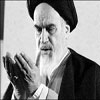
The present study is an attempt to briefly introduce some thinkers who played a crucial role in the Islamic movement. To begin with, we will examine some of their general characteristics, and then, certain personalities highly engaged in the struggle leading to the Islamic Revolution will be chosen on the basis of some proposed criteria. The lives, literary works and the main core of their thoughts- will then be explained in further details. However, it is necessary to first mention some points about the political and religious reflections of Imam Khomeini as the Leader of the Islamic Revolution and the founder of the Islamic Republic.
The Commonalties Between the Message and Conveyance of the Message
As mentioned before, this article is limited to the explanation of the thoughts or outstanding ideas that were effective in bringing about the Islamic Revolution with special attention to their inspirers. Obviously it would not be expected to examine each thought or idea from all possible
aspects in this brief account. What is more important is emphasis on some of the main thoughts that were effectively responsible for conceptualizing the mobilization of pro-revolution forces. Considering the religious nature of the Revolution, naturally this article will focus on the related religious reflections. Therefore, religious reflections here refer to those ideas which have played a role in the reformist movement with the ultimate aim of causing the revolution by revolutionary forces. And when thought is viewed in a relative context, attention would be focused on its inspirers. In other words, given the characteristics, abilities, approaches and readings of different thinkers, a great variety of readings are created.
The religious thinkers and ideologists whose remarks and thoughts have influenced the preparation and mobilization of revolutionary forces make up a wide spectrum. Obviously, different political, social and economic tendencies inspired by religion or faith are expected to exist in this spectrum based on the way of thinking or personal perception of each thinker.
1 - Criticism of the Pahlavi Regime
Obviously, when we decide to categorize the demands of religious thinkers in relation to inspiring or mobilizing revolutionary forces, criticizing the Pahlavi regime would be the primary criteria for such a categorization. Of course, this does not mean that all religious thinkers were actively opposed to the Pahlavi regime or Shah's monarchy, or at least expressed their discontent in one way or another, but what it actually refers to are those who could not remain indifferent towards the nature of the Shah's policies and saw themselves responsible to take a stand against those policies in some way.
source : www.abna.ir













